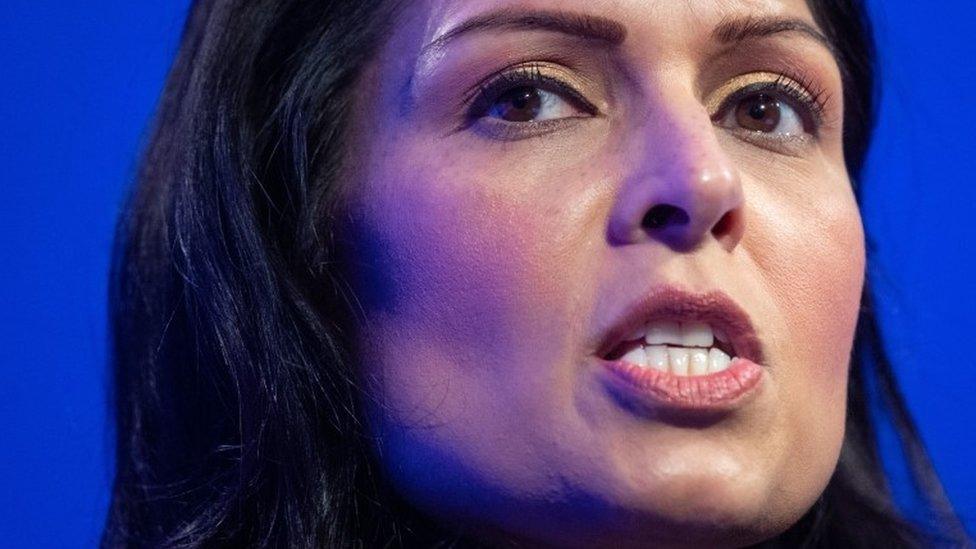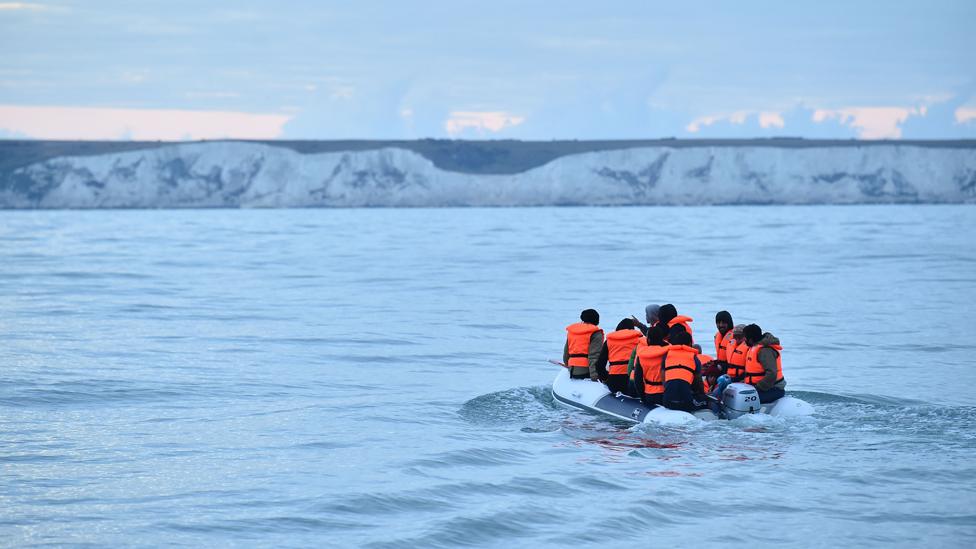Rwanda asylum seekers: UK government criticised over 'cruel' plan
- Published
Watch: Prime Minister outlines Rwanda immigration plans in April
Plans to send some asylum seekers who arrive in the UK on small boats to live in Rwanda have been described as "absolutely chilling" and "cruel and nasty" by charities and politicians.
The government has faced fierce criticism for the policy with questions raised over costs and impact as well as Rwanda's human rights record.
But Boris Johnson said the £120m pilot scheme would "save countless lives".
The PM said it would break the business model of "vile people smugglers".
The pilot scheme would initially focus mainly on single men arriving on boats or lorries and would see them given a one-way ticket for the 4,000-mile trip to Rwanda where they would be processed and, if successful, would have long-term accommodation in the African country.
Home Secretary Priti Patel, who travelled to Rwandan capital Kigali to sign the deal, said the "vast majority" of those arriving in the UK "illegally" would be considered for relocation to Rwanda.
The scheme is one of a number of measures announced to tackle small boat crossings in the Channel, with others including plans to hand operational control of the Channel to the Navy and asylum seekers who are resettled in the UK being spread more evenly across authorities.
More than 160 charities and campaign groups - including the UK network of non-governmental organisations Bond - have called on the government to scrap the plans in an open letter that described the scheme as "shamefully cruel".
Enver Solomon, chief executive of the Refugee Council, said the charity was "appalled by the government's cruel and nasty decision" that would "do little" to deter people from coming to the UK.
Labour leader Sir Keir Starmer said Mr Johnson was trying to distract from his "partygate" fine with the "unworkable, unethical and extortionate" scheme, while the Lib Dems said the government was "slamming the door" in the face of refugees and the SNP's Ian Blackford called it "absolutely chilling".


The government has for years struggled to address the issue of small boats crossing the Channel.
Different ideas have been floated about how to tackle illegal immigration - many have been dismissed and ruled out.
So this is an attempt by Boris Johnson to tackle the issue head on. It matters to Conservative voters - taking back control of borders was one of Mr Johnson's big Brexit promises.
But this isn't a simple plan to implement. It will be expensive - and it's extremely controversial.
Ministers know they will face legal challenges - and that some are sceptical it will amount to much.
The PM admitted it would not be enough on its own to solve the issue, but he insisted that over time it will prove a considerable deterrent. Many will be looking to see if he's right.

Former Ukip and Brexit Party leader Nigel Farage has also criticised the plans, saying they were "not much more than a short-term solution".
He told BBC Radio 4's The World At One programme the problem with sending people away to islands or other countries was "it's not very long before you start to hear tales of abuse" and after that the Human Rights Act could be invoked to stop it.
He suggested the UK should turn boats back - a method that was used by Australia - but Mr Johnson conceded the controversial "pushback" technique would be dangerous except in "extremely limited circumstances".
The plans have been welcomed by some with a snap YouGov poll, external showing 35% of those asked supported the proposal, while 42% opposed it.
Recent research by Ipsos Mori, external suggested 60% of the public were dissatisfied with the government's migration policy - more than half of which cited Channel crossings.
Former UK Border Force chief Tony Smith said it was a "bold move" and may put people off paying people smugglers, when they heard they could be sent to a third country.

'Something's got to give'
BBC Radio 5 Live listeners shared their views with Nicky Campbell:
"What's crueller - that or being drowned? If it saves one life, surely it's got to be better than what's happening with these migrants now" - Lorraine, Dartington
"How are we treating these humans? Are we suddenly saying those coming from Ukraine, their lives are better value than those coming from certain other countries? I think it's abhorrent" - Hamid, Bicester
"I feel it's a real shame. We seem to have eroded this idea of fairness in our nation. We seem to no longer want to be the nation that wants to help other people. It seems a shame we've lost those values in our country" - Chris, Devon
"Let's forget about the optics and actually look at the reality. People smugglers will keep trying to find different ways until we break it. That's the cruel part here... I applaud the government for having some backbone" - Martin, Bedford

Concerns have also been raised about the Rwandan government's human rights record and its president, Paul Kagame.
Steve Valdez-Symonds, Amnesty International UK's refugee and migrant rights director, warned sending people seeking asylum in the UK to another country "let alone one with such a dismal human rights record" was "the very height of irresponsibility".
Last year, the UK government expressed concern, external at the United Nations over "continued restrictions to civil and political rights and media freedom" in Rwanda.
But Mr Johnson described Rwanda as being one of the safest countries in the world and said there was a "risk of stereotyping".
Rwanda, a small landlocked country in east-central Africa, has been trying to recover from the ethnic strife that culminated in government-sponsored genocide in the mid-1990s.
Rwandan government spokesperson Yolande Makolo told the BBC it is "a safe country, it's developing rapidly, we care as much as every country about human rights".
She said the nation had a "strong record of protecting migrants and refugees".
"We're expecting thousands here - this is a brand new approach, it's never been done before."
According to a memorandum of understanding between the two governments the UK would screen asylum seekers "without delay" after their arrival in the UK and then provide Rwanda with basic details of each person it wanted to transfer.
Rwanda would have to approve all requests before they were transferred, and the arrangement would last for five years.
Rwandan foreign minister: Immigration plan not for those from neighbouring nations
After arriving in the east African nation each asylum seeker would be given accommodation and support and would be free to come and go from their accommodation at all times, the memorandum says.
The UK would also resettle "a portion of Rwanda's most vulnerable refugees" in the UK.
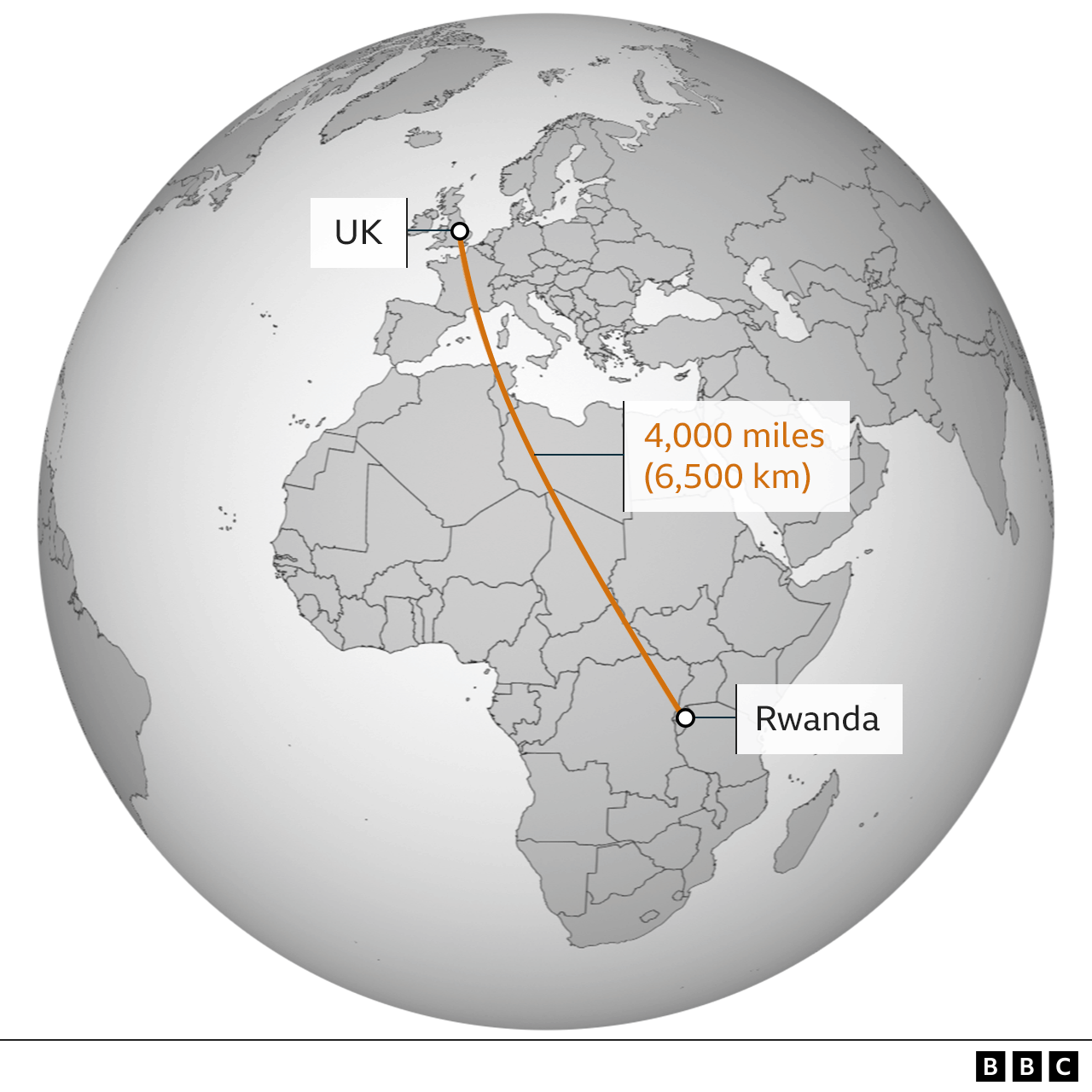
Mr Johnson said action was needed to stop people smugglers turning the ocean into a "watery graveyard", and said the British taxpayer could not be asked "to write a blank cheque to cover the costs of anyone who might want to come and live here".
On Thursday hundreds of people have crossed the Channel, with women, children and men brought ashore by the RNLI and Border Force at Dover, Kent.
Last year, 28,526 people are known to have crossed in small boats, up from 8,404 in 2020.
In 2021 64% of asylum applications were successful after an initial decision was made, according to government figures, with some more granted after appeals.
The number of people who could be relocated would be "unlimited", said Mr Johnson.
Rwanda will have the "capacity to resettle tens of thousands of people in the years ahead", including those who have arrived "illegally" since the start of the year, he said.
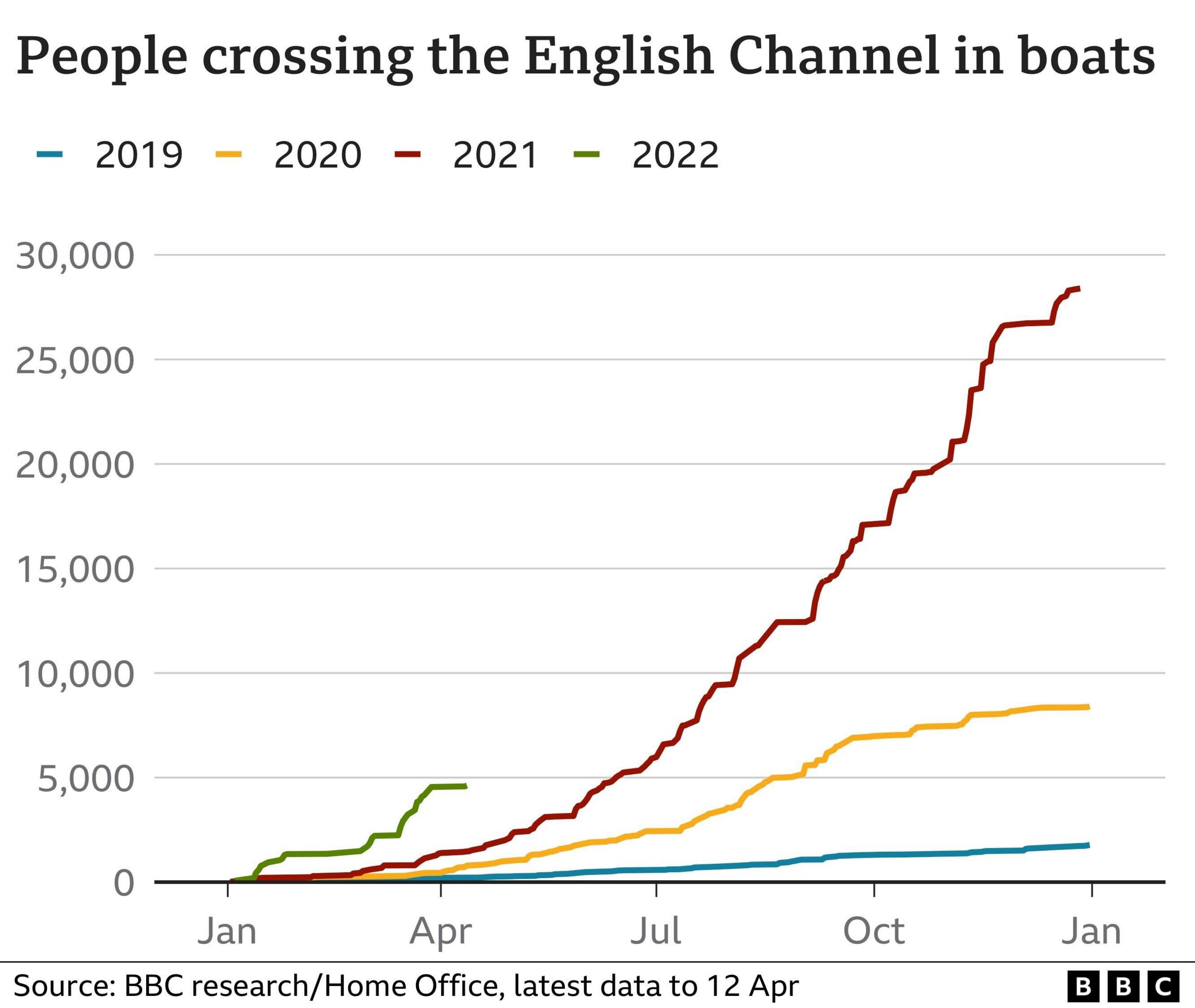
The home secretary said her department had prepared for legal challenges over the deal but she was confident any claims could be successfully contested.
During her visit to Kigali, Ms Patel said the British public had been "crying out for change for the years" and it was "incredibly unfair to the British public to see organisations in their own country effectively just putting blockages after blockages in the way".
Dr Niovi Vavoula, lecturer in migration and security at Queen Mary University School of Law, said she anticipated legal challenges being made under the international principle of non-refoulement - which guarantees no-one can be returned to a country where they would face "torture, cruel, inhuman, or degrading treatment or punishment and other irreparable harm".
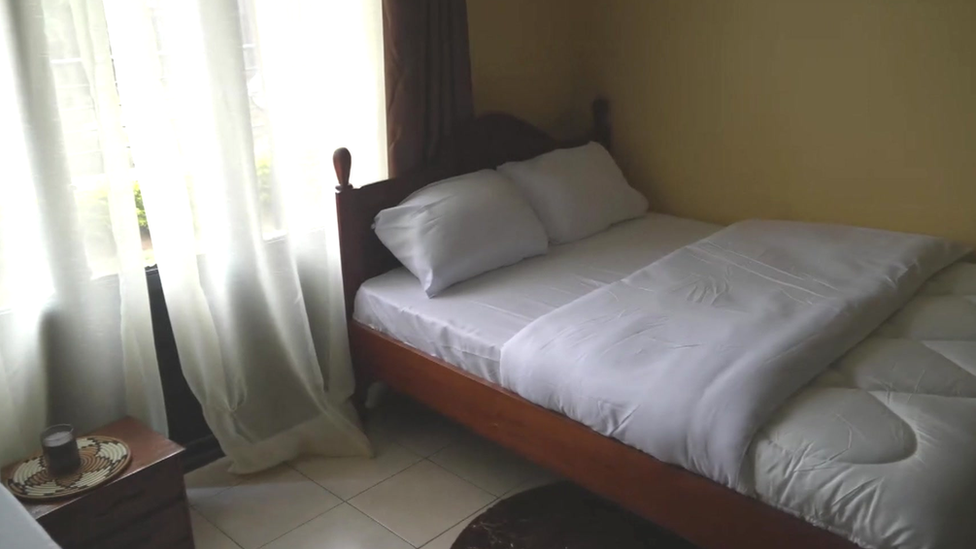
The BBC has seen accommodation the asylum seekers would be housed in, thought to have enough space for about 100 people at a time and to process up to 500 a year
The Rwandan government said migrants would be "entitled to full protection under Rwandan law, equal access to employment, and enrolment in healthcare and social care services".
The UK Home Office believes existing asylum law will be enough to implement the plan, and Ms Patel said it was not reliant on the Nationality and Borders Bill - which has faced a series of defeats in the lords - going through Parliament.

A WORLD WITHOUT DWARFISM?: Ellie Simmonds investigates a controversial new drug
EGG ROLLING, WITCHES AND FREE MONEY: How many questions on Easter traditions can you get right?

- Published14 April 2022
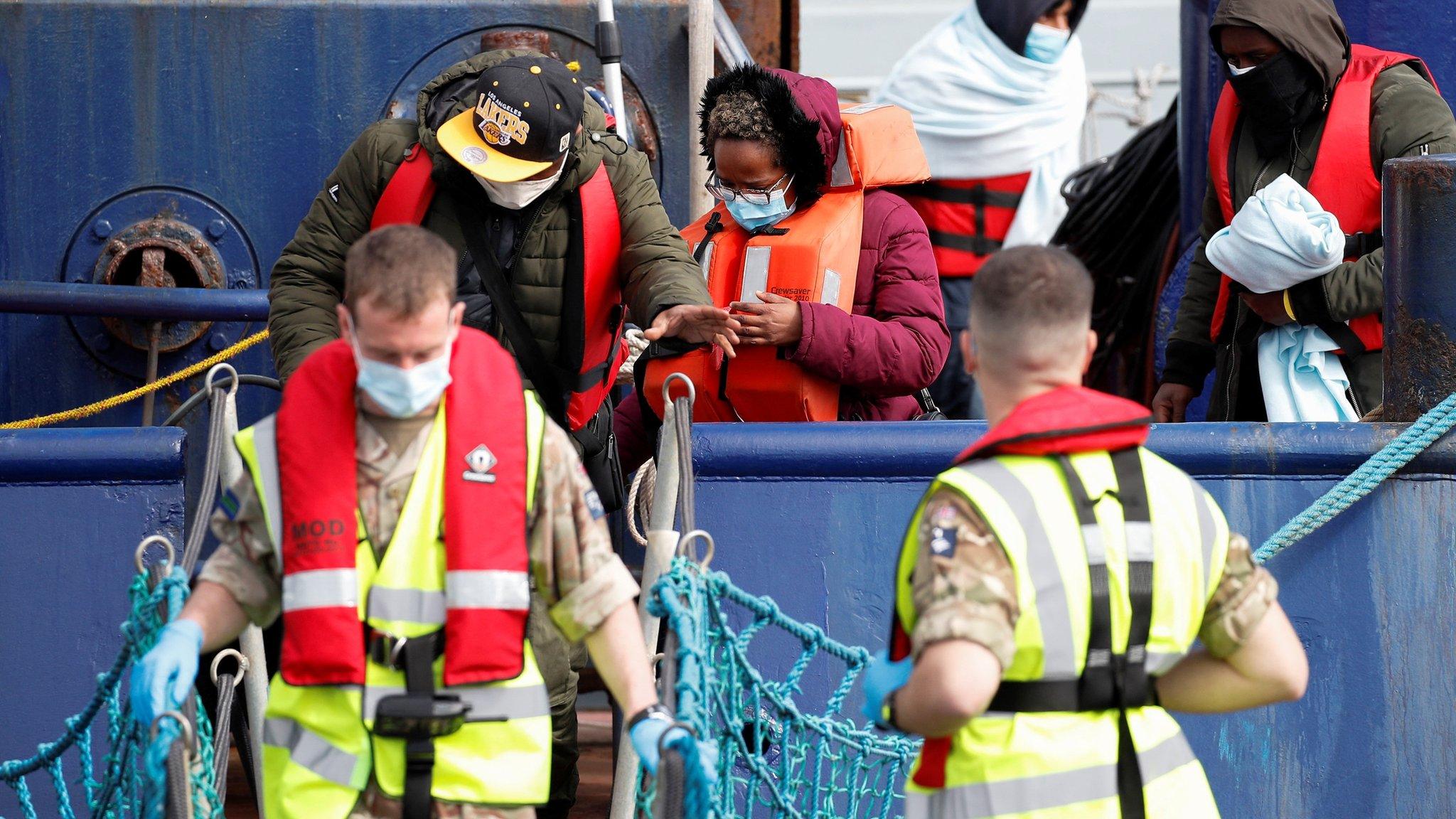
- Published25 March 2022
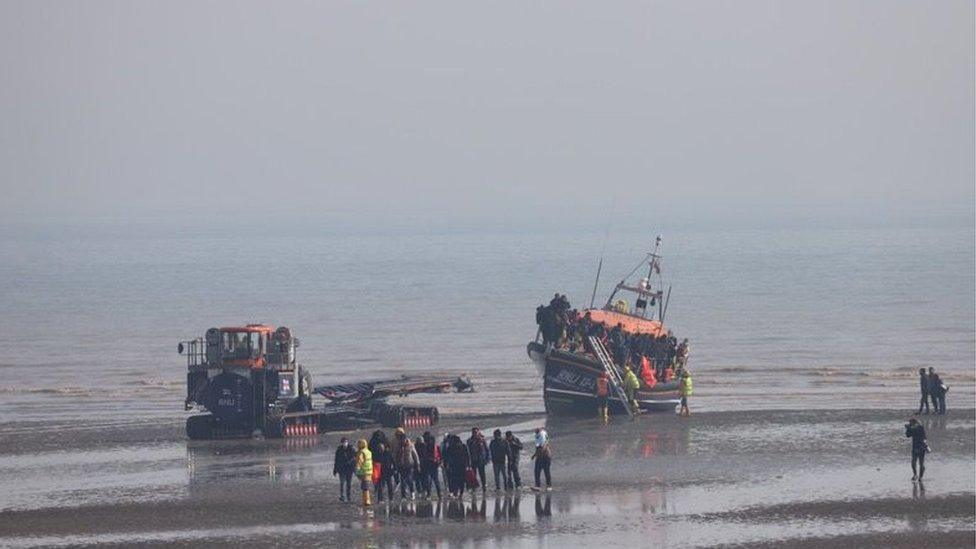
- Published18 April 2020
